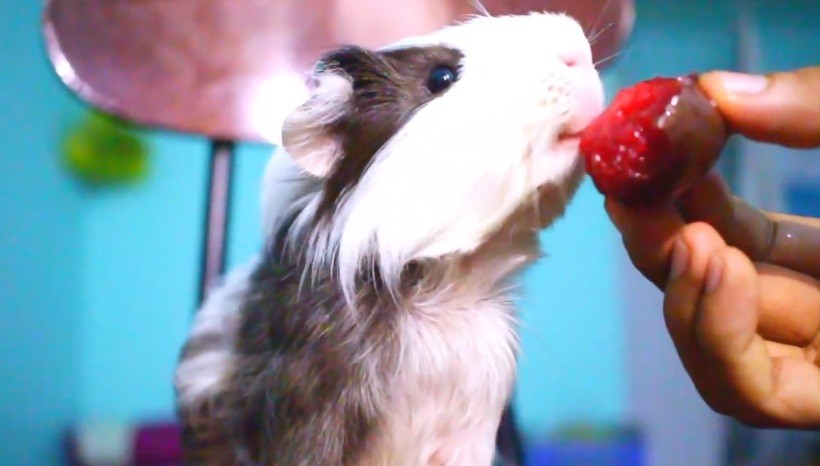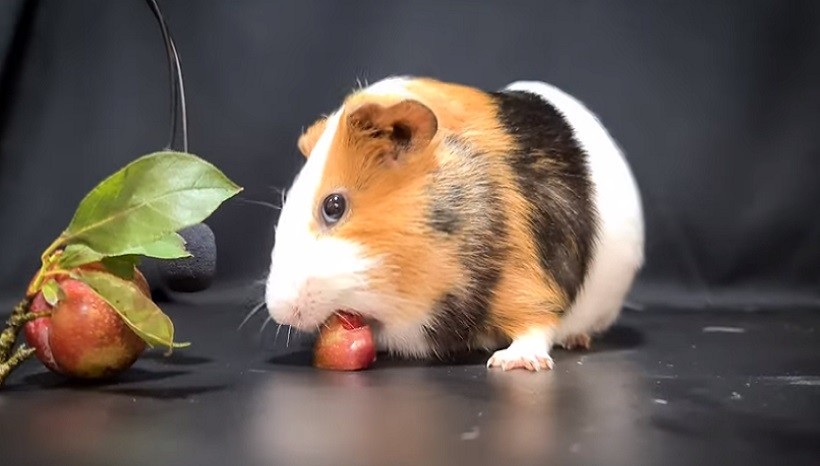Yes, you can feed plums to your guinea pigs, but only if you do it sparingly. Guinea pigs benefit greatly from plums since they are rich in vitamins and minerals. Plums include a trace of calcium and phosphorus, as well as fat. They are, nevertheless, quite sweet and acidic.
Although plums are high in nutrients, they can still be harmful to guinea pigs if consumed in large quantities. On average, you should feed plums to your pet twice a week. When it comes to adding plums to your guinea pig’s diet, they’ll love it.
They should only be given a limited number of plums. However, It contains a significant quantity of sugar when administered in large quantities.
Nutritional Facts of Plums
Plums are packed with vitamins, minerals, fiber, and antioxidants. As we all know, plums include a variety of vitamins. While we may not expect to discover so many in them, they do, and each one benefits a different aspect of health. The fact that they are immune boosters means that they lessen the possibility of illness and disease.
Below are the nutritional facts:
Do Guinea Pigs Like Plums?

Yes, guinea pigs enjoy eating plums. Our pigs require a high nutrient content in their feed. Plums do contain a little amount of Vitamin C, Vitamin A, and other vitamins, but in insignificant amounts.
Our guinea pigs should not be fed plums daily. Providing it in moderation is safe for them. Guinea pigs can eat plums 2-3 times per week. However, if you give your pet too many plums, his or her digestive tract will be unable to manage the sugar.
Offering pet-free and fresh-skinned plums are the finest options. These pigs are not poisoned by plums.
Do Guinea Pigs Like Plums Leaves?
No, guinea pigs cannot eat plum leaves. Their health is at risk since both branches and leaves have traces of cyanide, which is toxic to them. This tree may contain branch choking concerns for your guinea pigs.
Plum tree leaves are deadly to Guinea pigs as they contain cyanide in excess, which is particularly dangerous. As an alternative, they should simply eat the fruit itself.
Plums are fine to eat, but not their leaves and branches if you want to spare your guinea pig’s lives. Plants are the principal source of sustenance for Guinea pigs, who are herbivores.
In the wild, Guinea pigs consume grass, herbs, and even weeds. There are several plants and weeds which are not suitable for them.
Can Guinea Pigs Eat Prunes?
Guinea pigs should not be fed prunes. It’s a dried plum that’s called a prune. Not every plum is a prune, just to be clear. Prunes, on the other hand, are produced by a different species of plant than plums. Prunes have the same nutritional benefits as plums, but they contain more sugar. In addition to causing diarrhea, dried prunes are high in sugar. Prunes are rich in calcium as well as phosphorus and are high in fat. Prickly pear fruit is also acidic and contains a lot of sugar. Unfortunately, this means that guinea pigs can’t consume prunes since they’re too large. This is due to the soil’s high phosphorus content and acidity.
Can Guinea Pigs Eat Plums Every Day?

If you feed plums to guinea pigs, they will eat every day. Some veterinarians don’t like the concept of receiving fruit on a regular basis. It is recommended that you consume plums twice a week to be healthy. In spite of the fact that plums are delicious, the digestive system of guinea pigs was not meant to handle them. The diet of guinea pigs contains calcium sources, thus this does not mean that you should never feed your pet any product that contains an excessive amount of oxalates. As part of a balanced diet, plums, which contain oxalate, should be served in moderation.
How To Prepare Plums For Guinea Pigs?
Cut the plums into guinea pigs’ bite-sized pieces and serve them free of its pit, fresh plum peel for the best plum serving. Wash the plum thoroughly before feeding it to your guinea pig. As long as your pet doesn’t eat the skin, you can take the skin off before serving it. The skin has the greatest antioxidants that are harmful to guinea pigs’ health. Plums leaves and their branches should also be removed, as they contain minute amounts of cyanide, which can be quite deadly for your pet of that size. The plum should be cut into eighths. Your guinea pig can get a plum twice or three times per week.
Health Benefits Of Plums
An abundance of Vitamin C found in plums aids in iron absorption and enhances the guinea pig’s immune system. By supporting the smooth passage of nerve impulses, vitamin B6 maintains a healthy neurological system.
Vitamin B6 assists in nerve signal transmission, among other things. Reduced anthocyanin and quercetin concentration protect brain cells from degradation.
Anxiety disorders might be exacerbated by a lack of antioxidants. Potassium held in plums can help decrease blood pressure.
Phytochemicals in plums reduce inflammation, which causes heart disease. It aids in the removal of sodium from the body through urination, hence reducing blood vessel tension. When your guinea pig has high bone strength, they’ll live a long, healthy life.
Side-Effects Of Plums
Guinea pigs lack a developed digestive system capable of properly digesting fruit, thus if they are given too much of it, their system will fail. They experience sickness as a result of their digestive system’s inability to assimilate the fruit.
Diarrhea is exceedingly unpleasant and can lead to major health problems. Plums have high quantities of oxalates and calcium, which can cause urinary stone formation (urolithiasis). As a result, calcium stones may form.
If this occurs, your pet guinea pig may suffer and perhaps die consequently.
Conclusion
Yes, you can feed plums to your guinea pig, but only if you’re careful and attentive. Because guinea pigs are known to be sugar sensitive, plums should be offered sparingly. Plums contain a small amount of phosphate, calcium, vitamins A and C, among other nutrients, in addition to being high in fiber.
If you feed your guinea pig on a lot of plums, it may develop intestinal problems. Plums are also highly acidic and can cause bloating when consumed in excessive quantities.